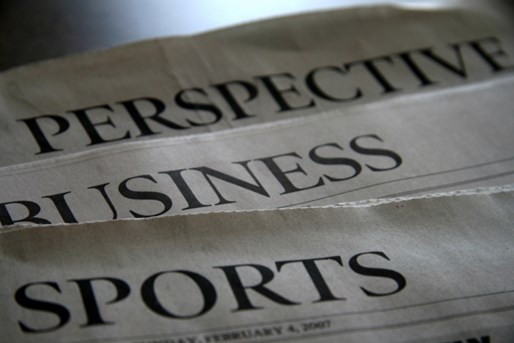New sports press survey: Newspapers focus narrowly on sports results

01.11.2012
By Ditte ToftSports politics and themes connected to the massive amounts of money in sport are largely ignored by the world's printed media when it comes to covering sport. Instead sports stars and their performances completely dominate the pages with football as the sport that takes up most column inches by far.
That is the short summary of the first findings from Play the Game's 'International Sports Press Survey' that was carried out in collaboration with researchers Jörg-Uwe Nieland from the German Sports University in Cologne and Thomas Horky from the Macromedia University for Media and Communication in Hamburg.
The two researchers have been responsible for collecting and analysing the massive amount of data in cooperation with colleagues from all over the world.
The survey is based on 17,777 articles about sport from 80 newspapers in 22 different countries.
That makes the survey the largest quantitative survey of sports content ever undertaken in printed media, and it follows up on a previous, smaller survey that Play the Game initiated in 2005 with analysis of sports content in 37 newspapers in ten countries.
Athletes and football take up most space
The first findings indicate that media coverage of sport is completely dominated by results and news about athletes and coaches in competitive sports. 77.7 percent of all articles about sport focus on athletes, coaches, teams and their performances.
Meanwhile, articles about sports politics and the cash flows that determine much of the development in sport only occupy very small corners in the newspapers. According to the research, only 2.7 percent of the coverage focused on sports politics whilst sports finance and economy were the topics of 3.1 percent of the articles studied.
There is also a clear bias in the coverage of individual sports. Football is the sport clearly preferred by the world's newspapers and is the basis for more than 40 percent of all the articles in the 80 newspapers. The tendency is even more pronounced in Europe, South America and South Africa where football is the topic of 50 to 85 percent of all sports articles, whilst media coverage of different sports is more equally distributed in countries like the US.
Compared to the 2005 survey, the new survey indicates that an international perspective has become more prevalent in sports coverage.
In 2005, 35 percent of all articles had an international focus. In 2011 that figure has risen to 42 percent. Similarly, the focus on national sports has decreased: In 2005, 55 percent of all articles had a national focus, but that share has decreased to 45 percent today.
Men dominate sports coverage
Sports articles are dominated by men - perhaps because newspapers continue to focus on traditional approaches to sports coverage. "If you take a closer look at the 17,777 articles written by journalists, you will discover that sports journalism is a man's world. More than 90 percent of the writers are male. Only eight percent of the articles are written by women. And there seems to be no development. In 2005 we got nearly the same result," Thomas Horky said during the presentation of the findings at the conference.
He continued:
"The content of sport is a man’s world too. More than 85 percent of the coverage of athletes is about male athletes."
Few sources in sports journalism
The survey also indicates a widespread tendency for journalists to use very few sources in their articles.
In more than 40 percent of all the articles, only one source was quoted. And one in four articles is presented to readers without indicating any sources at all. This is a slight increase compared to the previous survey.
Sources quoted by newspapers also tend to be from the big family of sport itself: Coaches and athletes make up approximately half the sources, followed by representatives of clubs and sports officials. Only rarely do journalists use experts from outside sport.
More findings to come
The findings from the 'International Sports Press Survey' leads to several interesting questions about the way sport is covered by printed media. For example, what is the significance of other media platforms - particularly internet media - for the development of sports journalism? What can printed media contribute to sports coverage at a time where new media take up an increasing proportion of the users' attention?
The researchers will continue probing and analysing the data. A report detailing findings and questions raised by the results will be published in due course.
About the survey
The survey is based on 17,777 articles from 80 newspapers in 22 countries. Over the period from April to July 2011, data from 14 selected days (two from each of the week's seven days) have been entered into a database. Results from all participating countries have been sent to the German Sports University for collection and analysis.
This article first appeared in the Play the Game 2011 Magazine.





